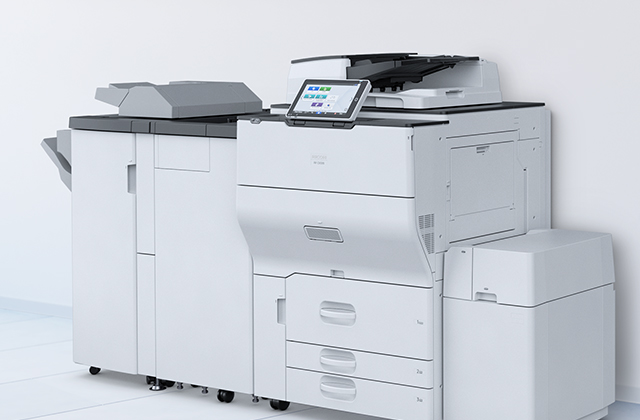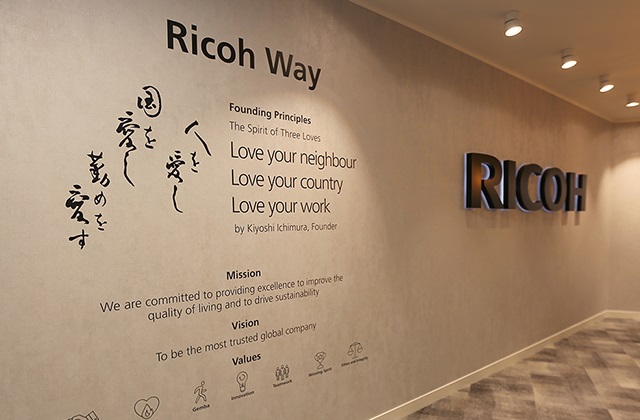84 per cent of consumers prepared to take action over irrelevant and non-personalised communications
80 per cent willing to share personal data to ensure comms are targeted and relevant
Ricoh Europe, London, 10 February 2016 – The inundation of irrelevant communications and junk mail is pushing European consumer loyalty to breaking point with the majority (84 per cent) ready to take action against brands, according to new research commissioned by Ricoh Europe.
Irrelevant communications, both online and paper-based, are a huge bug-bear for more than two-thirds of consumers in Europe, who consider a quarter of what they receive to be junk. Six-in-ten consumers even see junk mail as more frustrating than their commute to work.
Beyond the mere frustration factor, consumers are suffering negative consequences from being unable to sift through the flood of irrelevant information and poor quality comms. A quarter (25 per cent) have missed a payment deadline, and over a third have been unsure how much they owe for a service (34 per cent) or missed offers they were entitled to (39 per cent).
Brands need to beware that irrelevant communications are having a significantly detrimental impact on customer loyalty, trust and spend, and consumers are unafraid to bite back. Two-thirds (65 per cent) of consumers report feeling less loyal to a brand spamming with irrelevant information, whilst a similar number would also spend less (63 per cent) and even go so far as to stop being a customer completely (57 per cent). Nearly a fifth of consumers have moved their custom elsewhere, another fifth have complained to a service provider, and 1-in-10 have taken their complaint to an authoritative body.
David Mills, CEO of Ricoh Europe, said: “When it comes to the irrelevance and volume of communication sent out by brands and service providers, consumers are clearly saying enough is enough. It’s never been easier to communicate instantly with customers, but in the digital age, it’s likewise never been easier to spam. Brands need to tread carefully not to scupper the effectiveness of vital communication channels. With severe penalties in place for getting it wrong and consumers ready to walk away, hitting the right note at the right time is key. An increasingly competitive business landscape, an influx of highly ambitious start-ups and the simple fact that customers expect more from providers, means the need for quality, customised communications – both digital and paper-based – has never been greater.”
A majority of consumers (64 per cent) believe more could be done to tailor communications to their individual circumstances. 8-in-10 would even be willing to share personal data to make this happen, including occupation, salary, Internet browsing habits and health records.
Consumers also increasingly view digital communications as their preferred method to receive information from brands and service providers: for new offers and upgrades (74 per cent), statements and bills (67 per cent) and updates to terms and conditions (64 per cent).
Mills continues: “Consumers want to feel like a company has taken the time to get to know them as an individual and stop bombarding them with both confusing and meaningless information. The appropriate use of consumers’ data is critical for this. No matter whether they have a preference for digital communications – such as online bank statements – or a mix of electronic and paper-based, there’s no excuse not to use this insight to ensure communications are bespoke, which in turn makes them genuinely effective.”
The industries viewed as currently sending the most relevant communications to consumers are the public sector (42 per cent), financial services (39 per cent), utilities (37 per cent) and healthcare (36 per cent). With the exception of utilities, these industries were similarly seen to be the most trustworthy handlers of customer data. However, no single sector is viewed positively by more than half of consumers, which goes to show significant work still needs to be done by brands across all industries to bring confidence in their customer communications up to scratch.
“To do this, businesses need to streamline how they collect, distribute and manage data to ensure its consistent use across all channels. Information provided by customers setting-up their account or store-cards, for example, should be used to create promotional offers and updates that are not only personal to the individual, but also highly relevant to their circumstances. This results in the customer feeling valued, which ultimately drives loyalty and benefits to the business,” concludes Mills.
Find out more at www.ricoh-europe.com/thoughtleadership.
| About Ricoh |
Ricoh is empowering digital workplaces using innovative technologies and services that enable individuals to work smarter from anywhere.
With cultivated knowledge and organizational capabilities nurtured over its 85-year history, Ricoh is a leading provider of digital services, information management, and print and imaging solutions designed to support digital transformation and optimize business performance.
Headquartered in Tokyo, Ricoh Group has major operations throughout the world and its products and services now reach customers in approximately 200 countries and regions. In the financial year ended March 2022, Ricoh Group had worldwide sales of 1,758 billion yen (approx. 14.5 billion USD).
For further information, please visit www.ricoh-europe.com
© 2023 RICOH COMPANY, LTD. All rights reserved. All referenced product names are the trademarks of their respective companies.
For further information, please contact:
Ricoh Europe PLC
Charlotte Fernandez
E-mail: media@ricoh-europe.com
Homepage: www.ricoh-europe.com
Join us on Facebook: www.facebook.com/ricoheurope
Follow us on Twitter: www.twitter.com/ricoheurope
Follow us on LinkedIn: http://linkedin.com/company/ricoh-europe
Visit the Ricoh media centre at: www.ricoh-europe.com/press














